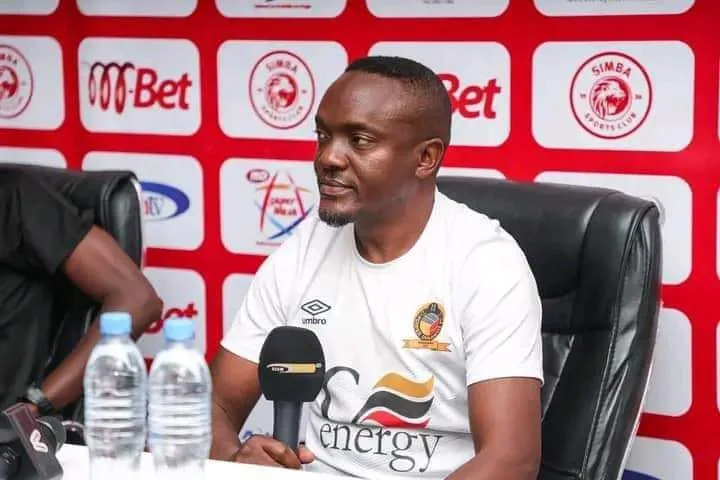Featured
Chipepo’s Departure: Assessing the Impact of Executive Interference on Coaching Prowess

Chipepo’s Departure: Assessing the Impact of Executive Interference on Coaching Prowess
By Samson Mulambya Bagba | November 10, 2023
In the dynamic world of football, the delicate balance between club hierarchies and the autonomy of coaches often becomes a pivotal factor in a team’s success or struggles. The interference of club executives or board members in the day-to-day duties of coaches has been a longstanding issue, raising questions about the impact on team dynamics, performance, and ultimately, the pursuit of silverware.
Several recent incidents have highlighted the challenges arising from undue interference. Coaches, renowned for their tactical acumen and man-management skills, often find their decisions scrutinized and sometimes overridden by individuals higher up in the club hierarchy.
One notable case is the departure of Mwenya Chipepo from Power Dynamos, citing interference from club top officials. The abrupt exit raises concerns about the balance of power and the impact it can have on a team’s stability, morale, and ultimately, its performance on the pitch.
When club hierarchies interfere with coaching duties, the repercussions are often felt in team dynamics. Players may find themselves caught in the crossfire of conflicting directives, affecting their confidence and commitment to the coach’s vision. This internal discord can be a breeding ground for inconsistency, poor results, and even player unrest.
On the tactical front, interference can disrupt a coach’s strategic plans. Football is a game of precision and timing, and any disruptions to carefully crafted strategies can lead to suboptimal performances. Coaches, hired for their expertise, find their ability to make decisions on substitutions, formations, and game strategies compromised.
Read also: Kansanshi Dynamos FC Part Ways with Head Coach Boyd Mulwanda
Finding a harmonious balance between club hierarchies and coach autonomy is essential for a football club’s long-term success. While clubs undoubtedly have a vested interest in the performance of their teams, it is crucial to recognize the expertise and authority of coaching staff.
Clear lines of communication, mutual respect, and well-defined roles can contribute to a healthy working relationship between club executives and coaches. Establishing trust in the coach’s judgment allows for a conducive environment where decisions are made with the best interests of the team in mind.
In conclusion, football clubs aiming for sustained success must recognize the importance of a collaborative approach. While club hierarchies provide crucial support and resources, coaches are the architects of on-field success. By fostering an environment of mutual respect, trust, and open communication, clubs can harness the collective expertise of both hierarchies and coaching staff, ultimately paving the way for success on the pitch. Striking this delicate balance is not just a matter of club strategy; it’s a prerequisite for achieving the shared goal of footballing glory.


Zambian Football News
Coach Nora Häuptle Lays Out Copper Queens’ WAFCON 2026 Blueprint

Football Association of Zambia (FAZ)
FAZ Confirms USD 520,000 Payment to Asanovic, Debt Restructured Until 2028

National League Results
ZPL National League Round 20 Results and Updated Standings

Zambian Football News
Copper Queens Begin WAFCON Build-Up as Nora Summons 38 Players

Zambian Football News
Sakala Fires Back at Mulenga: “You Turned Against Me Over Money”

African Football
Cameroon Eliminate South Africa From AFCON 2025 After 2–1 Win

General Football News
Manchester United Sack Ruben Amorim After 14 Months in Charge

African Football
Aubameyang Excluded as Gabon Government Reacts to AFCON Failure

Zambian Football News
Barbra Banda Calls for Adequate Preparation After Tough WAFCON 2026 Draw

Bola Yapa Zed TV
Watch Mali vs Zambia Highlights | AFCON 2025 Group A Drama

Zambian Football News
“We Played as Trained, But South Africa Outclassed Us – Chris Kaunda”

Bola Yapa Zed TV
Watch: Zambia 3-2 Sierra Leone: Extended Highlights

Bola Yapa Zed
Match Highlights: Atletico Lusaka vs Napsa Stars
Must Read
-


Zambian Football News
/ 2 hours agoCoach Nora Häuptle Lays Out Copper Queens’ WAFCON 2026 Blueprint
Zambia Women’s National Team head coach Nora Elizabeth Häuptle has outlined a clear, demanding...
By Chikondi -


Bola Yapa Zed
/ 6 hours agoWanderers End Losing Run as Rangers Extend Unbeaten Streak
Rescheduled MTN Super League Week 15 and 17 fixtures delivered high drama on Wednesday...
By Chikondi -


SPONSORED
/ 1 day agoParis Saint-Germain face Newcastle, Chelsea go to Naples: biggest Champions League matches of the week
The final round of the league phase will treat fans to many hot battles...
By Chikondi -


Football Association of Zambia (FAZ)
/ 2 days agoFAZ Confirms USD 520,000 Payment to Asanovic, Debt Restructured Until 2028
FAZ Resolves Debt to Former Coach Asanovic with Initial Payment and Long-Term Restructuring Plan,...
By Chikondi











